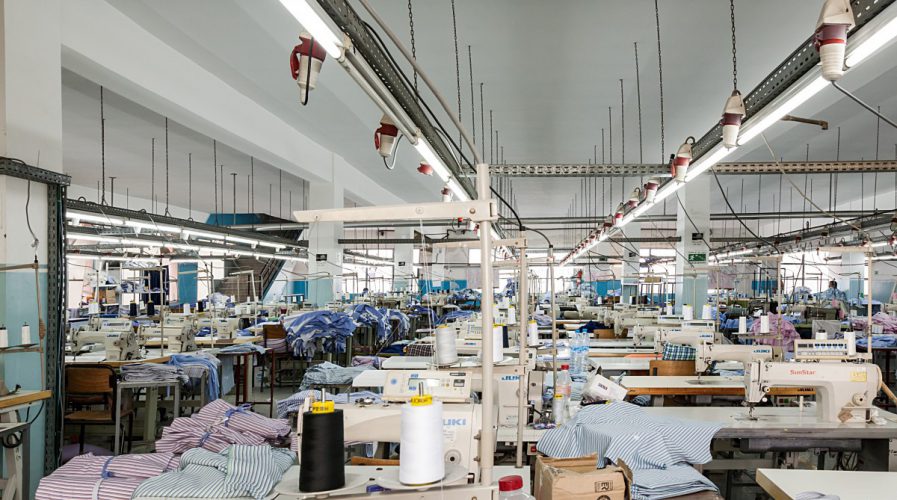
Li & Fung offers many services, ranging from product design and development to factory sourcing and distribution. Source: Shutterstock/Eduardo Lopez
Hong Kong: Li & Fung goes digital to save outsourcing business
MAJOR outsourcing service provider Li & Fung has come up with an IT investment package worth US$150 million in order to protect its middleman role by boosting the efficiency of its apparel product operations through the power of the Internet.
The Hong Kong-based company intends to plunge the money into the development of a digital system that centralizes the planning and design processes of apparel on a single Internet-based interface. It hopes to enhance its B2B businesses by allowing their clients to quickly review finished products and production costs of design variations. Clients can also implement new patterns and design changes that can be quickly relayed to factories.

Fung sees the future of his company in the philosophy of agile startups. Source: Northeastern University
CEO Spencer Theodore Fung’s vision of the new system will include new features such as 3D virtual design software, which will be developed in partnership with a Hollywood film animation studio. The new system is expected to halve the entire manufacturing process – from start to finish – down to 21 weeks from its current 40 weeks.
Li & Fung’s business model centers around catering to major retailers and fashion brands, and they have a significant client list that includes players such as Wal-Mart Stores and Macy’s. The company offers many services, ranging from product design and development to factory sourcing and distribution.
The planned investment is aimed at transforming Li & Fung’s middleman business to a software-centered one that will hopefully enable customers to reduce inventory waste and increase profitability. Over the last few years, Li & Fung has seen their profits shrink due to a decreased need for middlemen as more and more retailers begin to establish direct connections with manufacturers.
For example, retailer Inditex (owner of the Zara fashion brand) have begun establishing such relationships in response to the new culture of fast fashion and fickle trends.
SEE ALSO: Is Adidas’ tech venture a leading signal for the future of sustainable fast fashion?
Li & Fung’s profits rely heavily on its ability to control and manage its large manufacturing network that spans the breadth and width of Asia. A huge shift among US and European retailers has caused them a lot of problems recently, as the former are seeing their own profit margins shrink.
Retailers are plumping their own profit margins by cutting unnecessary costs, such as paying outsources like Li & Fung; for example, Wal-Mart has started to roll back on the scale of its partnership with them.
The way Fung sees it, the way forward is to achieve the agility and ethos of a startup. To Nikkei, he said speed, innovation and digitization hold the key to the company’s future. Whether or not he can chart the unfavorable headwinds is a toss-up.
READ MORE
- Ethical AI: The renewed importance of safeguarding data and customer privacy in Generative AI applications
- How Japan balances AI-driven opportunities with cybersecurity needs
- Deploying SASE: Benchmarking your approach
- Insurance everywhere all at once: the digital transformation of the APAC insurance industry
- Google parent Alphabet eyes HubSpot: A potential acquisition shaping the future of CRM
